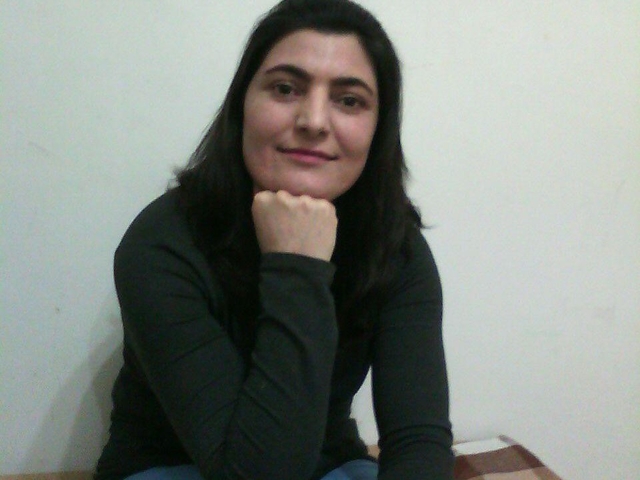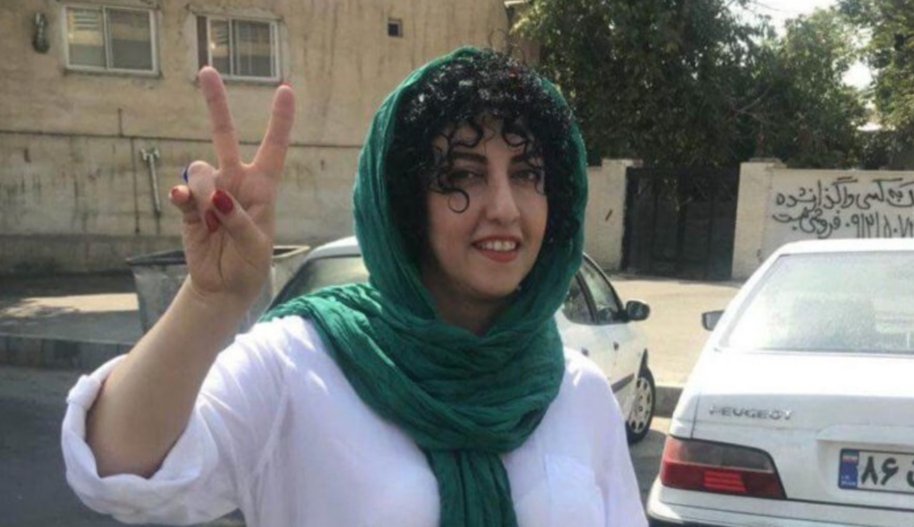Narges Mohammadi and Zeynab Jalalian, both long-term women human rights defenders, have been repeatedly targeted and detained for their human rights work. Amnesty International is calling for their immediate and unconditional release.
Women and girls were at the forefront of the popular #WomanLifeFreedom uprising in 2022, challenging decades of gender-based discrimination and violence, and defying discriminatory and degrading compulsory veiling laws that result in them facing daily harassment and violence by state and non-state actors, arbitrary detention, torture and other ill-treatment, and denial of access to education, employment and public spaces. Their agency follows a long tradition of women human rights defenders in Iran challenging a system determined to treat them as second-class citizens.
In order to silence my voice, the Islamic Republic system has not spared me any violent action, from condemning me to lengthy imprisonment to depriving me of seeing my children or even hearing their voices on the phone to beatings, exile, insults and assaults on my dignity… What keeps me on my feet … is my love for the proud and tormented people of my country, and for the ideals of justice and freedom. Until my last breath, I will not stop speaking about justice, crying out against oppression, defending those who seek justice and freedom, and demanding the realization of sustainable peace.
Narges Mohammadi, letter leaked from Zanjan prison in late December 2019
Narges Mohammadi, awarded the 2023 Nobel Peace Prize for “her fight against the oppression of women in Iran and her fight to promote human rights and freedom for all”, has faced reprisals by the Iranian authorities for her human right work for over 14 years. First arrested in 2010, she was eventually sentenced to 11 years in 2011 (later reduced on appeal to 6 years). She was released in 2012 following international protests. She was arrested again in 2015 on new charges and sentenced to 10 years. After her health deteriorated, including a Covid-19 infection in 2020, she was once again released. Since May 2021, however, Iranian authorities have unjustly convicted and sentenced Narges Mohammadi to over 12 years in prison, 154 lashes, and other sanctions in four separate cases stemming from her human rights activism, including advocating for families seeking truth and justice for loved ones unlawfully killed by security forces during nationwide protests. Most recently, in yet another case brought against her, in early August 2023, Branch 29 of the Revolutionary Court in Tehran convicted her of “spreading propaganda against the system” for her public writings from inside prison detailing sexual violence against women protesters detained during the “Woman Life Freedom” uprising and sentenced to a further one-year prison sentence.
Iranian authorities have deliberately denied or, in some instances, severely delayed her access to adequate healthcare, including for serious heart and lung conditions, placing her health at great risk. The denial of medical care is being used to punish her for refusing to comply with abusive compulsory veiling during transfer for medical care outside prison.
On November 12, 2023, Narges Mohammadi was summoned to the prosecutor’s office in relation to a new case, but prison officials refused her transfer unless she complied with discriminatory compulsory veiling laws, which she refused.

Zeynab Jalalian, a 41-year-old Iranian Kurdish woman, is one of the longest serving women prisoners held for politically motivated reasons in Iran. Zeynab was arbitrarily arrested in March 2008, convicted on charges of “enmity against God” (moharebeh) and sentenced to death for social and political activities with the political wing of the Party for Free Life of Kurdistan (PJAK). Her work focused on the empowerment of women and girls from the oppressed Kurdish minority and Kurdish self-determination.
The trial was grossly unfair, lasting only a few minutes and without her lawyer present. She was sentenced based on “confessions” made after enduring months of torture. In December 2011, Zeynab Jalalian’s death sentence was commuted to life imprisonment after she was granted clemency by the Supreme Leader. In Iran, a life prison sentence means serving the full length of an individual’s life. She is currently held in Yadz prison, some 1400km away from her family home in West Azerbaijan province, making family visits extremely difficult.
In April 2016, the United Nations Working Group on Arbitrary Detention called on Iran to release Zeynab Jalalian. The Working Group determined that she was detained for the peaceful exercise of her rights to freedom of expression and association and denied her right to a fair trial. The Working Group also expressed grave concern for her physical and mental wellbeing and said that her treatment violated the prohibition of torture or other cruel, inhuman or degrading treatment or punishment.
Despite this finding, Iranian authorities continued to subject Zeynab Jalalian to torture by deliberately denying her healthcare to coerce her into providing a videotaped “confession” and “repenting” for her past activities. Following at least two Covid-19 infections, Zeynab Jalalian has developed a lung condition and has trouble breathing – a condition that needs proper treatment.
Take action
Write to Head of judiciary, Gholamhossein Mohseni Ejei calling for:
- The immediate and unconditional release of Narges Mohammadi and Zeynab Jalalian.
- Pending their release, provide them with adequate specialized healthcare and protect them from further torture and other ill-treatment.
- A prompt, independent, effective and impartial investigation into all allegations of torture and other ill-treatment, with those suspected of criminal responsibility brought to justice in fair trials.
Write to:
Head of judiciary, Gholamhossein Mohseni Ejei
c/o Embassy of Iran to the European Union
Avenue Franklin Roosevelt No. 15
1050 Bruxelles
Belgium
What else can I do?
Sign and share our online action on the case of Zeynab Jalalian. A paper petition can be downloaded here.
If you are interested in long-term work on Iran, please contact Crisis and Tactical campaigner Hilary Homes at the national office: hhomes@amnesty.ca.
Top image: Human rights defender Narges Mohammadi © private













